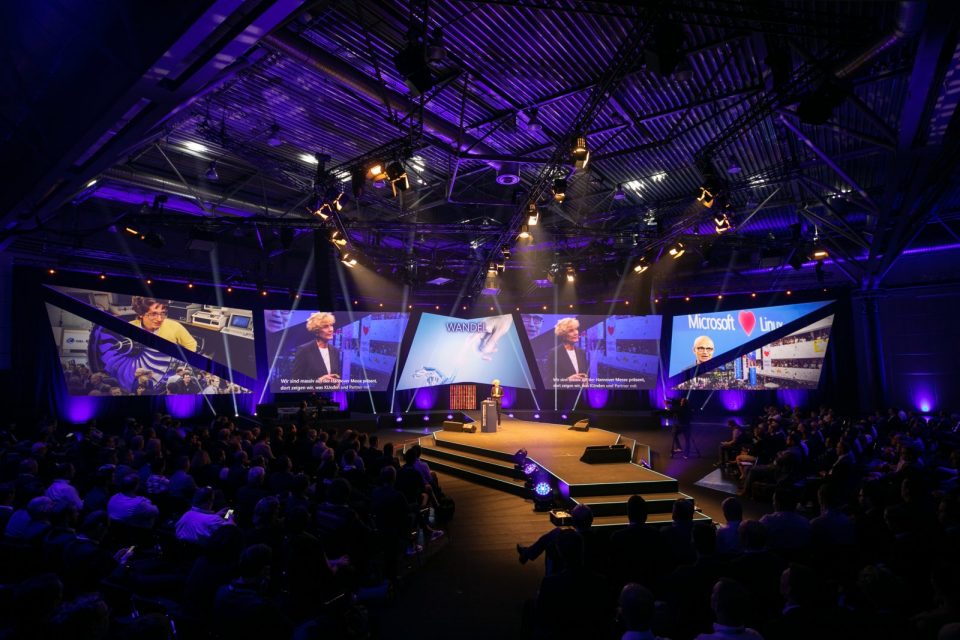By Sabine Bendiek, President and CEO Microsoft Germany
Three days, 100+ speakers, 75 sessions, 2,500 participants and a host of lectures, exciting discussions and intensive discussions. The curtains have fallen on a truly inspirational #DPK18 and #Impulse18 .
Solving problems with technology
At our most important partner and customer event in Germany , everything revolved around how digitization can help us achieve more and create something new. Of course, it was also about the latest developments in machine learning, artificial intelligence (AI), the Internet of Things, and the cloud. But here, we focused less on the technologies, and more on the problems they can solve.
For example, our partner VIVAI Software from Dortmund has devoted itself to the topic of how the elderly can live independently in their own home for as long as possible. The solution is the ‘Smart Service Power (SSP) apartment equipped with sensors and AI’, which will automatically detect via sensors in the future whether a resident has fallen and need help. An intelligent voice assistant also reminds you to drink and even turns off the cooker automatically.
The preservation of urban infrastructure is another exciting scenario. Part of the approximately 570,000 km long German sewer network is more than a hundred years old. In order to be able to plan refurbishment measures efficiently, cities and municipalities need reliable data on the conditions down below. The cloud-based e.SIC sewer inspection solution detects minor damages to the sewer pipe early enough to avoid expensive further damage.
AI, resources, and the environment
Another example is the “digital vineyard”, a joint project of CAIRO AG from Mannheim and the global technology provider Arrow Electronics. In addition to local sensors that continuously record values such as humidity, temperature or solar radiation on the ground, an autonomous drone also monitors the vineyard from the air. Using camera shots that are evaluated using Cognitive Services and Azure Machine Learning, the drone automatically detects where pest infestation or fertilization is needed. As a result, not only does it reduce the work of winegrowers; It also ensures that resources are spared because pesticides or fertilizers are used precisely where they are needed by the winemaker.
Such concrete examples are important because they illustrate the tremendous opportunities that AI provides for our daily lives, our environment, our diet or our health. It is these very examples that inspire and motivate us to use our human ingenuity to get even more out of Artificial Intelligence – after all, we are just beginning to discover the infinite possibilities of this technology. At the same time, such examples also illustrate that AI is no longer a vision of the future, but has arrived in reality – a reality where we do not have to be afraid. At #DPK18, it was amazing to see how valuable AI can be to humans, if we use them for our benefit and give them into the hands of people. In this way, the benefits of AI become a common good for us all.
The economic potential of AI
At the #DPK18 and #Impulse18, we wanted to make clear to all of our partners and customers the possibilities that already exist today. Because of course there is also a real economic potential in AI. According to a recent study by the BMWI , the use of AI in the next five years alone in the manufacturing industry will generate additional gross value added of around €32 billion. Germany, therefore, has favourable conditions to foster this technology – but we must not hesitate too long to take advantage of these opportunities.
With the tremendous advances in AI development and the interplay of intelligent cloud with the vast number of smart endpoints (“edges”), the world is changing faster than ever: printing has taken 340 years to reach the first billion people. After the invention of electricity, it took nearly 140 years for one billion people to benefit from it. The PC already had a billion users within 15 years and the smartphone took only eight years to do so. By comparison, analysts now expect that in 2020, more than 20 billion devices, sensors, machines, elevators and vehicles will be interconnected. That’s why BITKOM President Achim Berg quite rightly said on his DPK keynote that artificial intelligence is the technology of the future , in a similar way to what the automotive industry was for Germany for many years.
In closing, we have to continue the momentum and keep up with the pace of digitization. We should not be chasing after progress – we should start to shape the future, right now. I am sure that the German Partner Conference 2018 has sent the right signals for this, and I hope that the spirit of optimism and optimism so clearly felt over the course of these three days will carry us far beyond the next few weeks and months.




